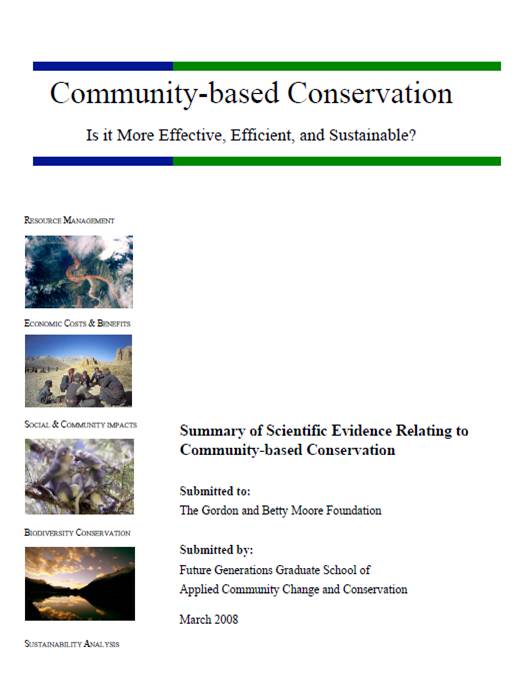以社區(qū)為基礎(chǔ)的保護(hù):是否更有效,高效和可持續(xù)?
發(fā)布日期:2020-01-13

Perhaps roughly ten percent of the planet remains an unpeopled “grand treasure” suitable for the set-the-land-aside approach, but how do we protect the remaining ninety percent? This paper offers an analysis of current thinking and trends in community-based conservation that draws from the scientific literature.
Through a review of current academic literature, combined with specific case studies of community-based conservation, this report distills components for success as well as challenges facing community-based conservation. Five major areas are addressed in this paper:
? Resource management. Are resources being effectively managed and what management approaches are being used?
? Economic costs and benefits.
? Social and community impacts. What are the social costs and benefits that accrue to a community that embraces this approach?
? Biodiversity conservation. Are community-based approaches to conservation really protecting and enhancing biodiversity?
? Sustainability analysis. Are community-based approaches to conservation sustainable, and what issues of management or governance threaten its continued success?
The paper first draws out of the peer-reviewed literature the major themes broadly evident worldwide from publications in English during the last five years.
The second part of the paper is comprised of four case studies (marine fisheries in the Pacific Northwest, wildlife management in Botswana, ecotourism in Guatemala, and community forestry in Nepal). These case studies dig deeper into issues related to community-based conservation, and they examine in detail community-based approaches to conservation as they are being applied in different environmental, cultural, and political settings.
The third section synthesizes the literature review and the case studies for trends in community-based conservation. Concerns of sustainability become apparent in this comprehensive analysis of the issues as well as best practices now being used to in community-based conservation programs. This analysis also incorporates lessons drawn from the authors’ decades of professional work in the United States and international settings in community-based conservation.
The final section of this paper is an appendix that gives an annotated bibliography of the reviewed literature.


















